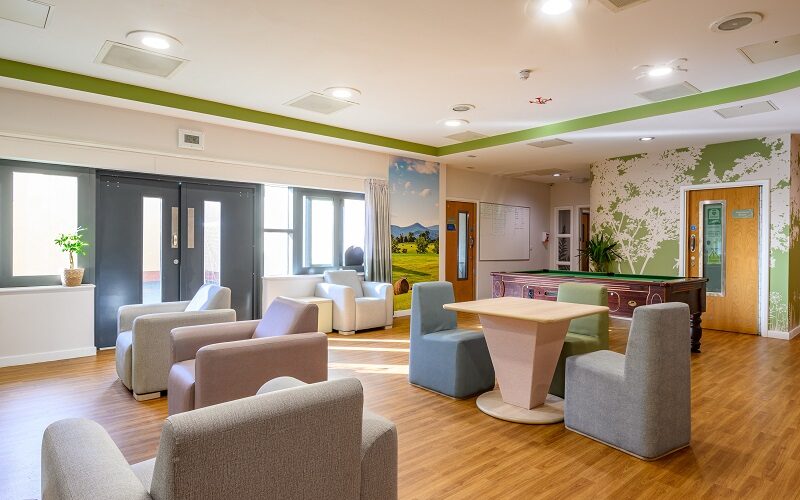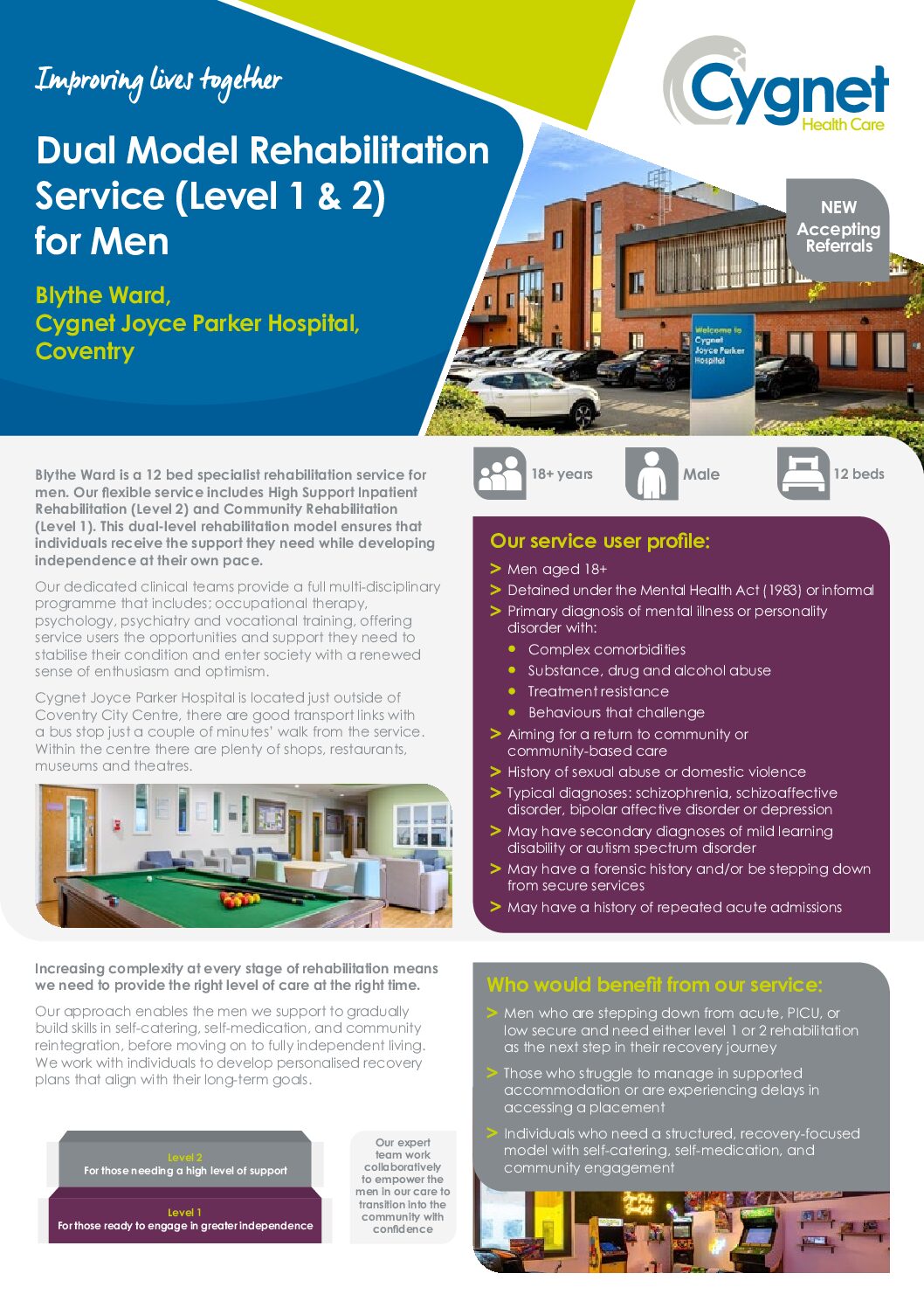
Gender: Male
Age: 18+
Beds: 12
Blythe Ward is a 12 bed specialist rehabilitation service for men. Our flexible service includes High Support Inpatient Rehabilitation (Level 2) and Community Rehabilitation (Level 1). This dual-level rehabilitation model ensures that individuals receive the support they need while developing independence at their own pace.
Our dedicated clinical teams provide a full multi-disciplinary programme that includes; occupational therapy, psychology, psychiatry and vocational training, offering service users the opportunities and support they need to stabilise their condition and enter society with a renewed sense of enthusiasm and optimism.
Cygnet Joyce Parker Hospital is located just outside of Coventry City Centre, there are good transport links with a bus stop just a couple of minutes’ walk from the service. Within the centre there are plenty of shops, restaurants, museums and theatres.
Our service user profile:
- Men aged 18+
- Detained under the Mental Health Act (1983) or informal
- Primary diagnosis of mental illness with:
- Complex comorbidities
- Substance, drug and alcohol abuse
- Treatment resistance
- Behaviours that challenge
- Aiming for a return to the community or community-based care
- History of sexual abuse or domestic violence
- Typical diagnoses: schizophrenia, schizoaffective disorder, bipolar affective disorder or depression
- May have secondary diagnoses of mild learning disability, autism spectrum disorder or personality disorder
- May have a forensic history and/or be stepping down from secure services
- May have a history of repeated acute admissions
Who would benefit from our service:
- Men who are stepping down from acute, PICU, or low secure and need either level 1 or 2 rehabilitation as the next step in their recovery journey
- Those who struggle to manage in supported accommodation or are experiencing delays in accessing a placement
- Individuals who need a structured, recovery-focused model with self-catering, self-medication, and community engagement
